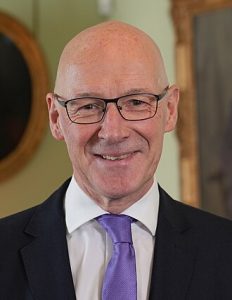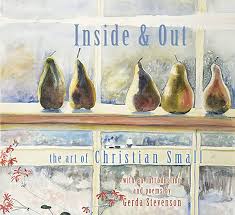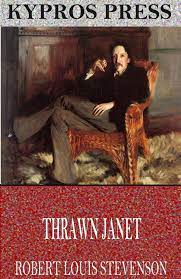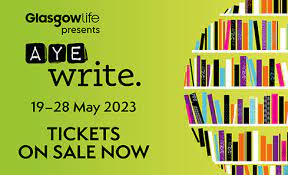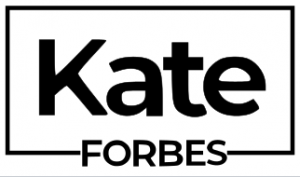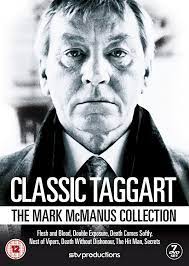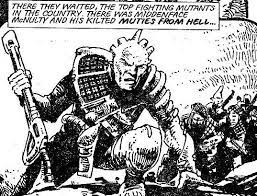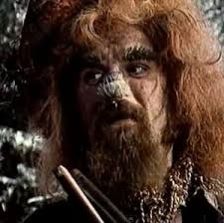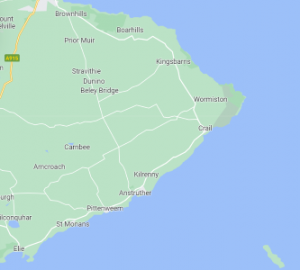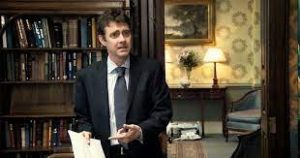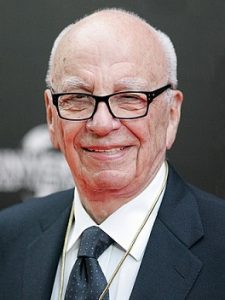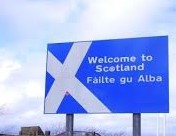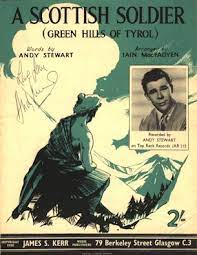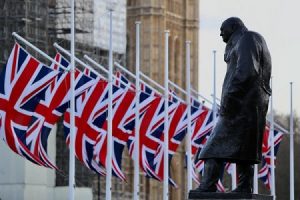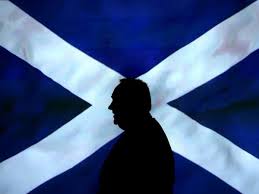
From the Jersey Evening Post
So it’s farewell to Alex Salmond, former First Minister of Scotland, former leader of the Scottish National Party and the man who gave Scots their first opportunity in 300 years to make their country independent again. The most formidable Scottish politician of his generation – of a couple of generations, surely – Salmond was apparently the victim of a heart attack soon after he’d given a speech in North Macedonia on October 12th.
To say I had conflicted feelings about Salmond is an understatement. For a quarter-century, from his election to the London parliament in 1987 to his resignation as Scotland’s First Minister in 2014, after the referendum on Scottish independence went against him and 55% of the Scottish electorate voted to remain in the United Kingdom, he was a man who achieved what had previously seemed impossible – he made Scottish politics interesting. His eloquence, wit and energy gave Scottish politics some oomph. He gave it the elusive ‘X’ factor.
And then… It went pear-shaped. I’ll stress the fact that in 2020 Salmond was cleared of the charges of sexual misconduct levelled against him. Also, the Scottish government, which bungled the initial investigation into him, and the Scottish media, which gleefully turned the coverage of Salmond’s trial into a circus, came out of the affair poorly too. But Salmond’s own lawyer admitted his client “could have been a better man.” All too often in Scotland’s top political job, he’d behaved with the decorum of a lewd schoolboy – to the point where staffing procedures around him were changed to prevent women having to work with him on their own. Also, after the trial, which had been a traumatic experience for the women who’d spoken out against him, Salmond displayed zero contrition. He could have shown himself to be ‘a better man’, but didn’t.
Anyway, here’s a slightly revised excerpt from something I wrote about him in 2021. It was just after the Alba party, which he’d formed in the wake of his acquittal, had flopped at that year’s elections to the Scottish parliament. Obviously, since I wrote it, the electoral shine has faded from the SNP too.

From en.wikipedia.org / © The Scottish Government
For the last 35 years, since the dark days when Margaret Thatcher ran Scotland with the imperious disregard one would give a colonial possession, Scottish politics has felt like a rollercoaster with both giddy peaks and despairing troughs. And Salmond has been a constant presence on that rollercoaster. I know plenty of people who detest him but I’ve seen him as a force for both the good and the bad, the good earlier on and bad more recently. It’s the memory of the good things that makes me sad to see him end up like this, even if he brought a lot of it upon himself.
I remember when I first saw him. One afternoon in early 1987, while a fourth-year undergraduate student, I was nursing a pint in the Central Refectory building at Aberdeen University. I noticed from the corner of my eye a group of students whom I knew as members of the campus branch of the SNP – Alan Kennedy, Val Bremner, Gillian Pollock, Nick Goode – enter and wander over to the counter. They were in the company of a young, round-faced bloke in an un-studenty suit, shirt and tie. I identified him as an up-and-coming SNP politician whom Alan Kennedy, a good mate of mine, had told me was standing in the next general election in nearby Banff and Buchan against the incumbent Conservative Party MP Albert McQuarrie. He’d come to the university that day to address the SNP group and this was the SNP students showing their visitor some post-talk hospitality. The politician, I’d been assured, was one to watch. Indeed, Alan said something along the lines of: “He’s going to do great things.”
A few months later, on June 11th, the general election took place and this rising SNP star wrestled Banff and Buchan away from Albert McQuarrie and became its new MP. I recall McQuarrie, a doughty old-school Scottish Tory MP who revelled in the nickname ‘the Buchan Bulldog’, bursting into tears during a subsequent interview at what he saw as the unfairness and indignity of losing his beloved constituency to an SNP whippersnapper. He was perhaps the first politician, but certainly not the last, to have his nose put out of joint by Alexander Elliot Anderson Salmond.
By the early 1990s, Salmond was SNP leader. I lived in London at the time and occasionally I’d drink with a Labour Party spin doctor, also from Scotland. He had no inhibitions about telling me, at every opportunity, what a detestable creep he thought Salmond was. With his smartass manner and habitual smirk, which frequently expanded into a Cheshire-cat grin, and a general arrogance that no doubt came from knowing he was intellectually and rhetorically streets ahead of the numpties making up the majority of Westminster’s Scottish Labour MPs, you could understand how much of an annoyance Salmond was to his opponents. But back then the SNP had just three MPs, so at least he could be dismissed as a minor annoyance.
How long ago that seems now. In those far-off days, the Labour Party controlled much of Scotland at council level, provided the lion’s share of Scottish MPs for Westminster and, when it arrived in 1999, dominated the Scottish parliament too. If their party also happened to be in power at Westminster, which it was occasionally, Scottish Labour-ites surely felt like masters of all they surveyed. If the Conservatives were in power at Westminster, which they were most of the time, those Scottish Labour-ites grumbled a bit, but diplomatically kept their heads down while right-wing Tory policies were imposed on Scotland.
Then in 2007 the sky fell in. Salmond’s SNP won the biggest number of seats in the Scottish parliament and he became Scotland’s First Minister. The SNP have remained in power there during the 17 years and three Scottish parliamentary elections since. They also won the majority of Scotland’s Westminster seats in the UK general elections in 2015, 2017 and 2019. They lost the independence referendum in 2014 – an event that led to Salmond resigning as First Minister and making way for his deputy and supposed protégé Nicola Sturgeon – but the percentage of the vote they got, 45%, was still far more than what anyone had expected at the campaign’s start. They upended the cosy old tradition of Scottish deference to the London-based overlords. Thank God for that, in my opinion.

© William Collins
This stuck in many craws. Not just in those of the Scottish Labour Party, with its historical sense of entitlement, but in those of the majority of Scotland’s newspapers, whose hacks had enjoyed a close relationship with the old political clique and liked to see themselves as part of Scotland’s establishment. It must have horrified them to discover that, no matter how negatively they reported the SNP and its performance in government, a significant proportion of the Scottish public ignored them and kept on voting SNP. Meanwhile, the grin of Alex Salmond, the bastard who seemed emblematic of their good times coming to an end, grew ever wider, his mood grew ever merrier and his girth grew ever more Falstaffian.
However, from 2017 onwards, Salmond’s many foes scented blood. 2017 saw him lose the Westminster seat that, after quitting as Scottish First Minister, he’d been elected to in 2015. That same year, he put on at the Edinburgh Festival a chat-show called Alex Salmond: Unleashed, which from all accounts was a graceless, self-indulgent and ego-driven mess. Soon after, he developed his stage-show into a programme called The Alex Salmond Show, which was broadcast on RT, Russia’s international English-language news channel. Associating himself with Vladimir Putin’s televisual voice to the world was not a wise move. Salmond hadn’t just given his detractors ammunition to use against him. He’d handed them a whole arsenal.
I’d always assumed there was no dirt to dig up on Alex Salmond, for the simple reason that if there had been, his enemies in the old Scottish establishment would have dug it up and used it to wreck his reputation long ago. Thus, it was a surprise in 2018 when the Daily Record newspaper reported that Salmond faced allegations of sexual misconduct while he’d been First Minister. This had lately been the subject of an inquiry by the Scottish government and its findings had been passed on to the police. Although Salmond made sure there was a legal review of this, which resulted in the Scottish government admitting that its investigative procedures had been flawed and paying him half a million pounds in legal expenses, the police still charged him with 14 offences, including two counts of attempted rape, in 2019.
One year later, Salmond was cleared of these charges. The prosecutors dropped one charge, the jury found him not guilty in 12 more and the final charge was deemed ‘not proven’. Nonetheless, Salmond’s defence admitted he’d acted inappropriately, been overly ‘touchy feely’ with female staff and ‘could certainly have been a better man’.
Meanwhile, the Scottish government and First Minister Nicola Sturgeon, now totally at odds with Salmond, were subject to both an investigation by a Scottish Parliamentary committee and an independent investigation about how they’d handled, or mishandled, the affair. The committee concluded there’d been both individual and corporate incompetence but these conclusions weren’t enough to topple Sturgeon. The independent investigation judged that Sturgeon hadn’t breached the ministerial code, something that Salmond and his supporters, convinced of a conspiracy against him in high places, maintained she had.

From facebook.com
In 2021 Salmond founded the Alba Party, supposedly more gung-ho in its desire for Scottish independence than the cautious SNP, and claimed this wasn’t an attempt to undermine Sturgeon. But it was generally perceived as an effort to diminish her party’s vote in the Scottish election that year – Salmond’s revenge after his acquittal. Whether Alba’s purpose was malevolent or benevolent, it didn’t work because the SNP ended up with 64 seats in the new parliament, with the Greens bumping up the number of pro-independence MSPs to 72, compared with the Unionist parties’ tally of 57 MSPs and Alba’s tally of zero.
It didn’t help Alba’s cause that it attracted a lot of fringe-dwelling dingbats in the independence movement, dingbats whom I’m sure Sturgeon’s SNP was delighted to see head Salmond’s way. These included conspiracy fantasists (former ambassador Craig Murray, a man who couldn’t pop out to the shops to buy a pint of milk without claiming to have met an MI5 operative and uncovered an evil plot by the British government along the way), frothing social conservatives (Margaret Lynch, who peddled the lie that LGBT organisations were trying to lower the age of consent to ‘ten’) and the generally ‘hard of thinking’ (MSP Ash Regan, whose big idea was to create an ‘independence thermometer’, measuring Scotland’s readiness to leave the UK).
Finally, one thing I will say in Salmond’s defence. The Scottish press was pretty disgraceful in how it reported the case. From columnist Alex Massie declaring at the investigation’s outset that ‘WHATEVER HAPPENS, IT’S OVER FOR SALMOND’, to the Herald previewing the trial with a ‘Big Read’ feature that it illustrated with pictures of the Yorkshire Ripper, Fred and Rosemary West, the Moors Murderers, Dennis Nilsen, Charles Manson and Adolf Eichmann, to a dodgy, nod-and-a-wink post-trial documentary by the BBC’s Kirsty Wark, the tone of the coverage didn’t suggest that a person is ‘innocent until proven guilty’. Rather, it suggested that a person is ‘guilty because we want them to be guilty’.
***
The piece I wrote in 2021 ended with an observation, “the Salmond Rollercoaster has run out of track,” and a plea to him: “Call it a day for Christ’s sake.”
Since then, of course, Nicola Sturgeon’s reign as Scottish First Minister has come to an ignominious end too. These events call to mind the famous quote by that old Conservative politician and racist Enoch Powell: “All political lives, unless they are cut off in midstream at a happy juncture, end in failure, because that is the nature of politics and of human affairs.”
If only Alex Salmond had kept his hands to himself whilst First Minister. And if only he’d retired and accepted the role of distinguished ‘elder statesman’ in 2014. He wouldn’t have disproven Powell’s famous edict, because his career would still have ended with the disappointment of the referendum. But at least today I’d be remembering him as ‘a better man’. And it’s as ‘a better man’ that I’d like to remember him.

© Slainte Media / RT / From archive.org





